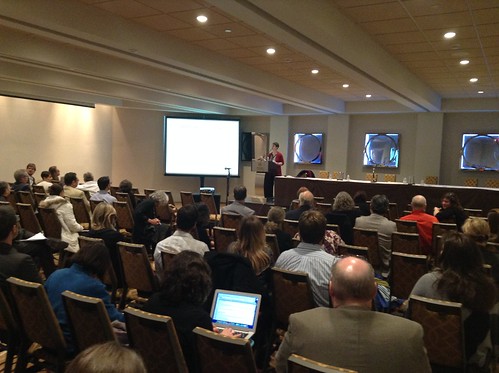 If you were on Twitter and were following me around the time of the recent International Studies Association (ISA) conference in Toronto (Canada), you probably knew I was ill for most of it. I wasn’t feeling well (from food poisoning to lack of sleep to general malaise) and thus, I missed perhaps the best opportunity for me to network with other scholars I follow on Twitter and wanted to get to know in person. That said, it was a fantastic opportunity for me to catch up with friends and colleagues who belong to the Environmental Studies Section (ESS) of ISA. I am on the Executive Committee (2013-2015) of ESS/ISA, and also on the editorial board of the journal Global Environmental Politics, which means I had to attend (despite feeling rather unwell) several meetings. I didn’t mind precisely because I knew those would be the only chances I would have to meet with colleagues whose work I love and respect. And I took care of myself throughout the conference.
If you were on Twitter and were following me around the time of the recent International Studies Association (ISA) conference in Toronto (Canada), you probably knew I was ill for most of it. I wasn’t feeling well (from food poisoning to lack of sleep to general malaise) and thus, I missed perhaps the best opportunity for me to network with other scholars I follow on Twitter and wanted to get to know in person. That said, it was a fantastic opportunity for me to catch up with friends and colleagues who belong to the Environmental Studies Section (ESS) of ISA. I am on the Executive Committee (2013-2015) of ESS/ISA, and also on the editorial board of the journal Global Environmental Politics, which means I had to attend (despite feeling rather unwell) several meetings. I didn’t mind precisely because I knew those would be the only chances I would have to meet with colleagues whose work I love and respect. And I took care of myself throughout the conference.
To me, this ISA was the most important to attend in recent years, not only because of my service duties, but also because it was a chance for me to present my evolving research with my friend and colleague Dr. Kate O’Neill (University of California, Berkeley) on informal e-waste recycling across the US and Mexico border, but also because it gave me an opportunity to meet other scholars who study the global governance of waste (the panel Kate and I co-organized), revisit research on North American environmental politics. After I co-presented with Kate on e-waste governance, I was a discussant afterwards for a panel on North American environmental politics, which I enjoyed enormously. And finally, for the most important reason: because for the first time, I saw international studies scholars (many of whom come from political science and international relations) talk space, scale and location with geographers. As I said before, ISA is an extremely interdisciplinary and welcoming association and I was glad that we had this conversation.
And this brings me to the crux of my argument: I loved going to ISA 2014. Despite the challenges that academic travel poses to me (particularly, that I almost always get sick when I travel to a conference or workshop). Despite the fact that sometimes the feedback you get is non-existent, and thus I often privilege smaller workshops instead of large academic conferences.
I attended ISA 2014 because we wanted to get feedback on an evolving project, and this was a warm and welcoming audience. I attended ISA 2014 because it allowed me to kickstart my academic writing in a field I never wanted to leave (the global governance of waste). I attended ISA 2014 because I want to be competitive internationally, and I want my research to be disseminated worldwide, not in the local scale.
I know that travelling internationally does increase my carbon footprint, and often times, I fall sick within the first few days. But whether we like it or not, we haven’t yet gotten to the point where we can substitute the warmth of a physical embrace, the kindness of a live comment at a panel, the smiles and positive comments from participants at the conference. And having martinis with your academic friends. So, for better or worse, I will continue attending international conferences and participating with my research.
I will be missing a few of the important ones, like MPSA, AAG, CPSA, CAG, but I will be at APSA. Looking forward to it.


0 Responses
Stay in touch with the conversation, subscribe to the RSS feed for comments on this post.